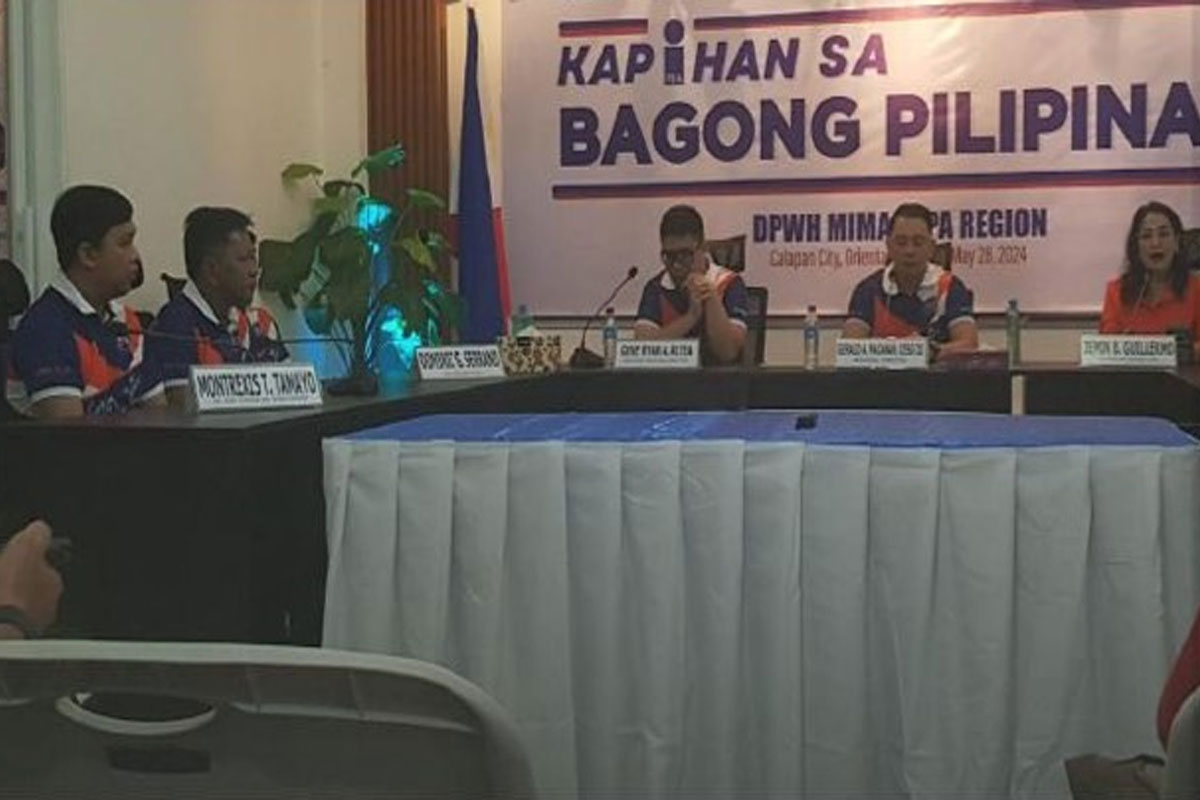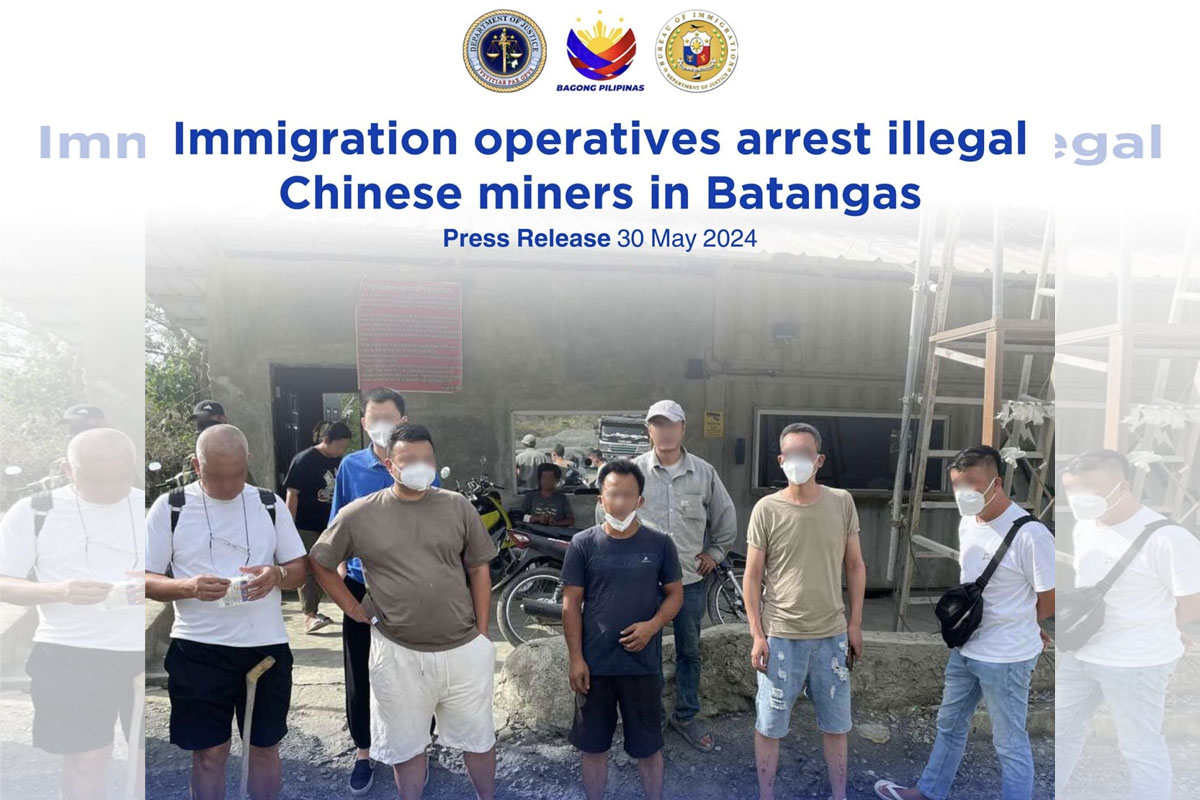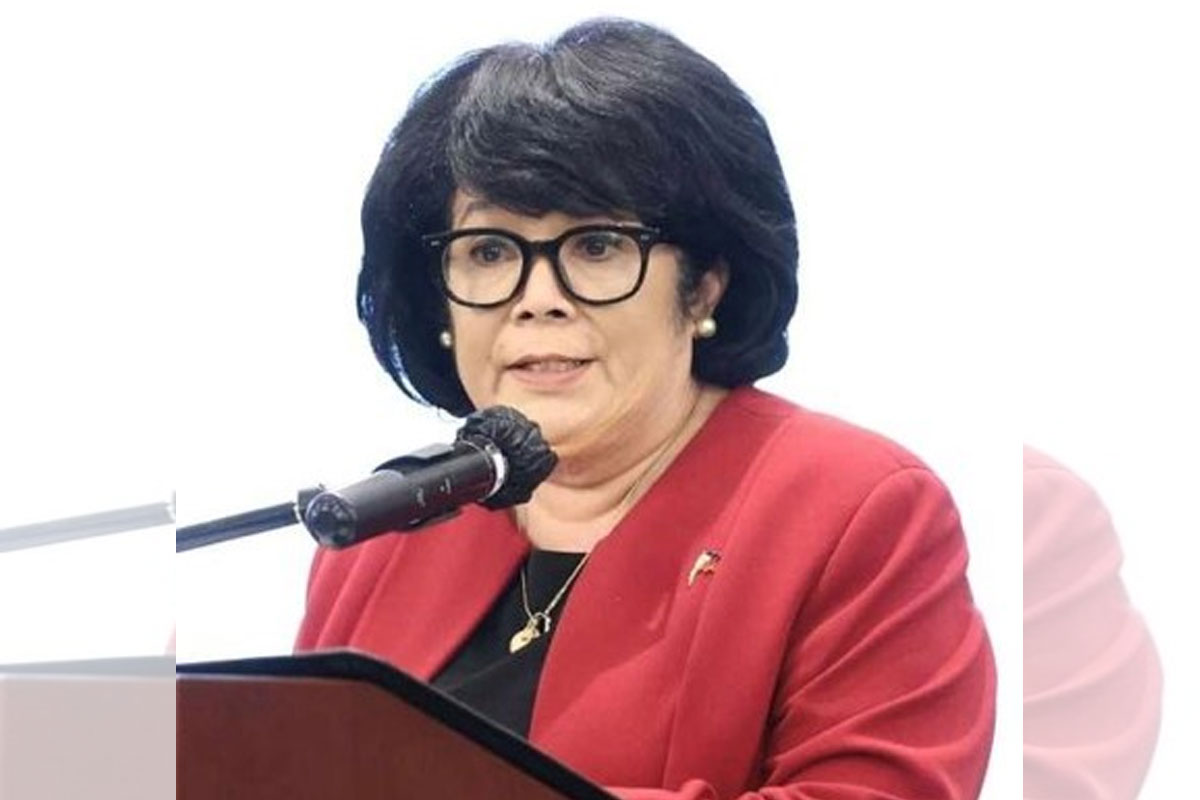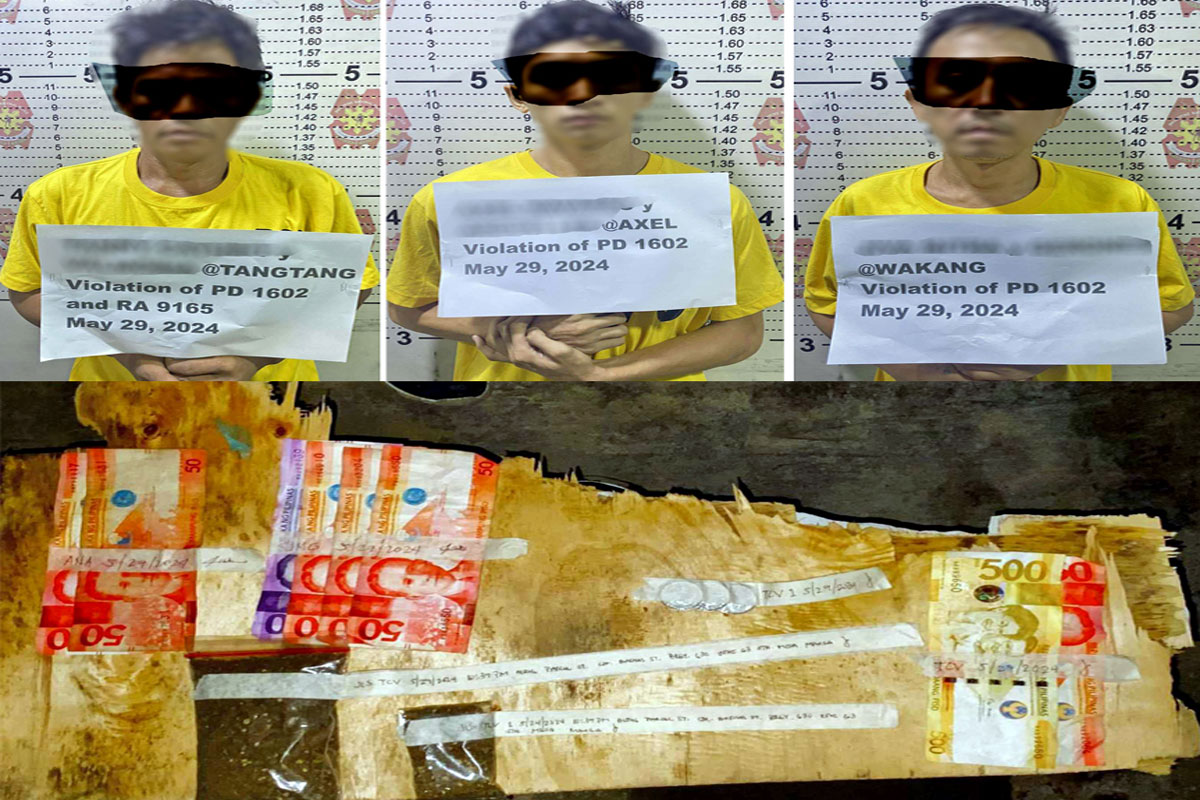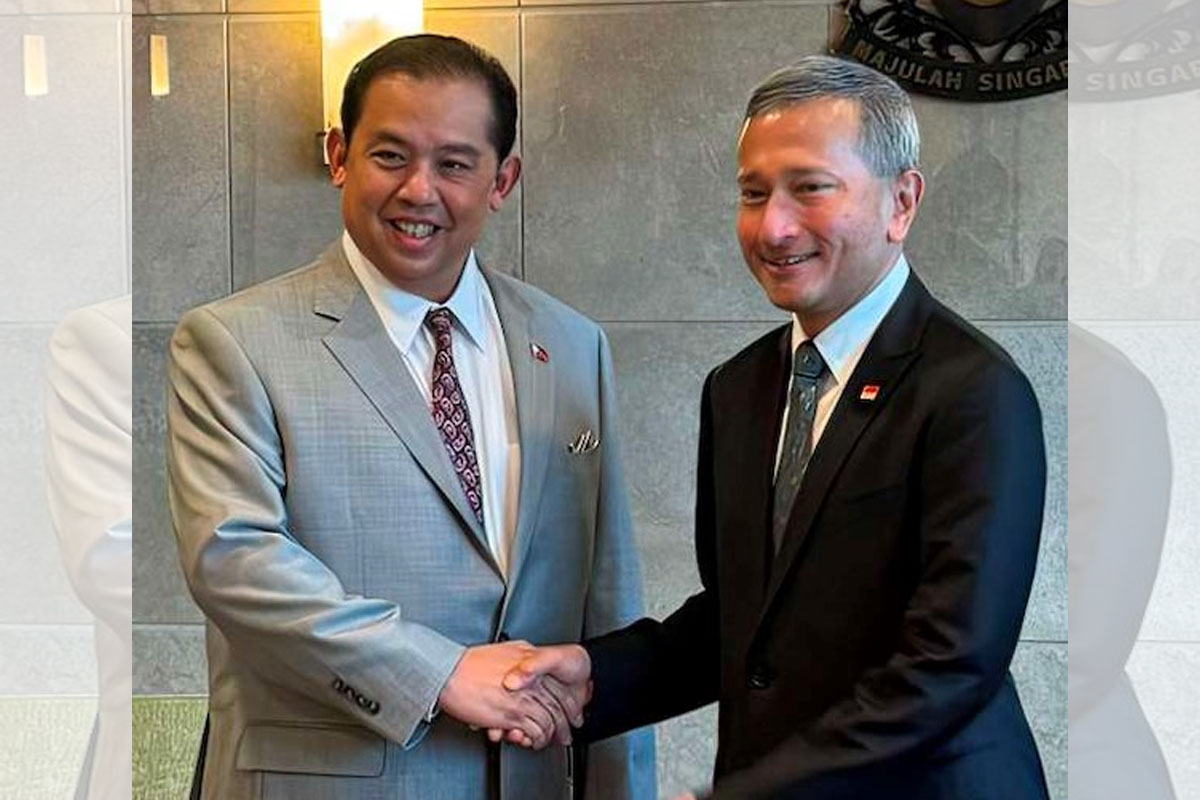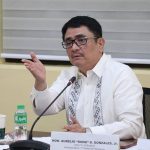
Villafuerte: Cha-cha crucial to turning PH into $2T economy
THE conditional prospect of the Philippines becoming a $2-trillion economy—or where the likes of Canada, Italy and Brazil are right now—in a decade’s time should serve as a strong impetus for senators to make this rosy scenario happen by passing after their Lenten break their version of the House-approved resolution “expunging our Constitution of its restrictive economic provisions that have put off investors,” Camarines Sur Rep. LRay Villafuerte said on Sunday.
Villafuerte, National Unity Party (NUP) president, said such a considerable expansion of the Philippine economy, as projected by the World Economic Forum (WEF) on the back of what it called our country’s status as the region’s fastest-growing economy, is contingent, according to the WEF, on the continued implementation of reforms leading to further investments in infrastructure and education, among others.
“Hence, the ‘very bullish’ forecast on the Philippines’ economic future by this Geneva-based international organization should serve as a strong impetus for senators to pass RBH 6 (Resolution of Both Houses No. 6) after our March 22-April 28 Lenten break, as part of the further reforms indispensable to scaling up foreign investor interest and generating FDI (foreign direct investment) inflows to the much higher levels enjoyed by our neighbors in the region,” Villafuerte said.
By a vote of 289-7 with 2 abstentions, the House of Representatives passed last week on third and final reading RBH 7, which is its constitutional reform resolution that was patterned after RBH 6 that is still being tackled in the Senate—in support of President Marcos’ push for economic reforms in the Charter as a way for more investments to stream into the Philippines.
The House leadership had adopted the mode proposed by the late constitutional expert Fr. Joaquin Bernas, a member of the 1986 Constituional Commission (ConCom) that drafted the 1987 Constitution, on the passage of the resolution like an ordinary bill but adhering to the constitutional vote requirement of three-fourths of the chamber’s members.
Given the ongoing discussions by the Senate subcommittee on constitutional amendments and revision of codes, Villafuerte presumed that senators appreciate by now the views by the President’s economic managers along with experts from the private sector that the constitutional restrictions on foreign ownership or participation in local businesses have been responsible for the anemic FDI inflows despite the Philippines’ status as one of Asia’s fastest-growing economies before and after the Covid-19 pandemic.
“Now, the WEF considers our country as the fastest-growing one, and believes it could grow almost five-fold into a $2-trillion economy in the next decade, for so long as it pursues further reforms to sustain high growth and attract far more investments,” Villafuerte said.
In a recent press conference following a roundtable at Malacañan Palace, WEF president Borge Brende said: “We are very bullish on the Philippines, provided the reforms do continue. I think that this can be, in the coming decade, a $2-trillion economy if there are further investments in education, infrastructure and also able to draw on the great competence of the people of the Philippines.”
To speed up the congressional approval of constitutional reform as endorsed by President Marcos, Speaker Martin Romualdez and other House leaders had introduced RBH 7, which was patterned after RBH 6 in limiting Charter amendments to only the economic provisions that restrict foreign ownership in public services, education and the advertising industry.
A bigger economy of $2 trillion, from its current size of $380 billion, will make the Philippines comparable to where Canada, Italy and Brazil are at present.
In a separate report, the New York-based S&P Global sees the Philippines joining by 2033 the small club of Asia-Pacific economies surpassing $1 trillion each in size, which includes China, Japan, India, Australia, South Korea, Taiwan and Indonesia.
For WEF’s Brende, “The (Philippine) economy here has really shown how resilient it is. We are seeing a lot of global business interest in the Philippines. It’s now the fastest-growing economy in the region.”
However, Brende added that although there has been an increase in foreign investor interest in the Philippines, its current FDI level is “relatively lower” compared with neighboring countries.
Villafuerte said that the WEF’s conditional projection for our country’s possible transformation into one of Asia’s biggest economies in a decade’s time is “the latest defense for urgent constitutional reform as the only way for the Philippines to capitalize on its robust economic growth pre- and post-Covid in terms of investment generation.”
“Only by turning the Philippines into an investment magnet will President Marcos be able to deliver on his vision for a peaceful and prosperous Philippines,” he said, “because greater FDIs alone will spell more jobs, which, in turn, will raise incomes and improve the living standards of our people,” he said.
“Our senators don’t have to be rocket scientists to know that our country can never keep up with, much less overtake, our more vibrant neighbors unless we are able to generate as much FDI inflows as they have long been enjoying already,” he added.
Earlier, Villafuerte said he was hopeful that the two-year FDI plunge would be the “tipping point” to prompt senators to pass RBH 6.
Villafuerte said the latest official data pointing to the FDI decline for two consecutive years—despite the robust post-Covid rebound of the domestic economy—will “somehow be the tipping point to convince senators that the Philippines will remain at the tailend of the region when it comes to investment generation, for so long as the restrictive economic provisions of the 1987 Charter stay—and continue to spook overseas investors.”
“For over a decade before the pandemic, the Philippines had struggled with anemic FDI inflows despite its investment-grade ratings and enviable status as one of Asia’s economic stars,” Villafuerte said. “Fast forward to the post-Covid period and our country, despite emerging as the fastest-growing economy in the region, remains stuck with scanty inbound investments when compared to those going to our neighbors.”
“This to me is the most striking evidence that the outdated protectionist provisions of our Constitution make up the single biggest deal breaker for foreign investors,” he said, “and hopefully the tipping point to impel our senators to greenlight RBH 6 after the Lenten break of the Congress.”
President Marcos told reporters in Prague last March 15 that the Senate and the House had “arrived at a consensus” on Charter Change, with the House passing RBH 7 already and the Senate continuing with its hearings on RBH 6.
“What is more important than all of that for me, is that it is practically the same resolution. And that for me is the key point in this process. We have arrived at a consensus,” President Marcos said.
““We all knew how this began, how contentious this was. Well, we seem to be going down a common road now between the two Houses. So, that’s the, that for me is the important thing.”
As for Senate President Juan Miguel Zubiri, he said in the same statement released by the Presidential Communications Office (PCO) that the Senate was on track and has about three more hearings left and “then we’ll be taking it up on the delivery. And we’re convincing our colleagues that we have a three-fourth aboard of this measure. But strong point. we’re on track, we’re on track.”
In a report, the Department of Finance (DOF) said that Philippine growth of 5.5% in the first three quarters of 2023 was the fastest in the region, where China’s economy grew 5.2%; Indonesia’s, 5.1%; Vietnam’s, 4.2%; Malaysia’s, 3.9%; Thailand’s, 2%; and Singapore’s, 0.5% in that same period.
As for credit rating agency Fitch Ratings, it projected in its latest Asia-Pacific Sovereigns Credit Outlook that the Philippines’ gross domestic product (GDP) would grow 6.45% this year—or higher than Vietnam’s 6.3%, Indonesia’s 5%, Malaysia’s 4.2%, Thailand’s 3.8% and Singapore’s 2.3% for this year.
Despite these positive reports, though, the most recent Bangko Sentral ng Pilipinas (BSP) data showed that FDI inflows plummeted for the second straight year, falling 6.6% to $8.9 billion in 2023 from $9.5 billion the year before and $10.5 billion in 2021.
According to the BSP, the two-year investment drop happened “notwithstanding the country’s sound macroeconomic fundamentals …”
Moreover, citing the ASEAN Investment Report 2023, Villafuerte bared that while FDI flows into the ASEAN rose 5.5% in 2022 to $224 billion, those that entered the Philippines fell to $9.2 billion that year from the year-ago’s $12 billion.
Sen. Juan Edgardo Angara, chairman of the Senate subcommittee on constitutional amendments, said before the congressional recess that his panel will resume hearings on RBH 6 after the break.
Even as Zubiri himself had conceded that getting a three-fourth majority vote behind RHB 6 was a “big challenge,” Villafuerte noted that Zubiri nonetheless said that getting 18 senators or three-fourths of the chamber to vote for the measure was—in Zubiri’s words—still “in the realm of possibilities.”
Villafuerte said he likewise took Angara’s word for it that: “Some of my colleagues may possibly change their minds along the way. Maybe they will be swayed by the arguments they will hear in the coming weeks and months (in the subcommittee hearings).”
Also, Villafuerte said he was banking on Zubiri’s leadership in the Senate to work on his peers to get the three-fourths majority vote behind RBH 6, given that the Senate President was the principal author of this measure, and had committed the Senate’s action on this resolution in his meetings with the President.
Villafuerte said the economic experts who had expressed their views on RBH 7 during the House deliberations on this resolution had cited the rapid progress of Vietnam, once an economic laggard in the region, as the reason for legislators to sharpen the Philippines’ global competitiveness in the borderless world by lifting the Constitution’s economic provisions that hamper greater FDI inflows.
Citing comparative investment data, National Economic and Development Authority (NEDA) Undersecretary Rosemarie Edillon said in the House that in 1990, Vietnam had generated $243 million in investments as against the Philippines’ $3.26 billion.
By 2022, Philippine investments reached $113 billion, or just about half the $210 billion in FDIs that entered Vietnam.
“So meaning we are looking at the difference of about a hundred billion (dollars) and this one—a lot of this is really due to the liberalization efforts that was done by Vietnam,” Edillon said.
Foundation for Economic Freedom (FEF) president Calixto Chikiamco said at the House that, “The Philippines is alone in having economic restrictions in its Constitution. Other countries have their restrictions through policy and legislation providing them the flexibility to adopt quickly to maximize opportunities.”
At the Senate, the founding NEDA Direct-General and emeritus professor at the University of the Philippines School of Economics (UPSE) Gerardo Sicat said that the protectionist economic provisions of both the 1973 and 1987 Constitutions had educated generations of Filipinos on “a myopic version of economic nationalism.”
Of the five original ASEAN members, the Philippines was “unique in that some important economic sectors are singled out for specific protection under the Constitution, the fundamental law. All the other countries simply left all matters pertaining to economy and business to ordinary legislation,” according to Sicat.
“That is why Singapore, Thailand, Malaysia and, later, Indonesia have overtaken us in economic growth and in industrial accomplishments! And today, we look up to their examples of success, whereas during the early postwar period, they were copying some of the early steps that we were taking to achieve progress,” Sicat added.





